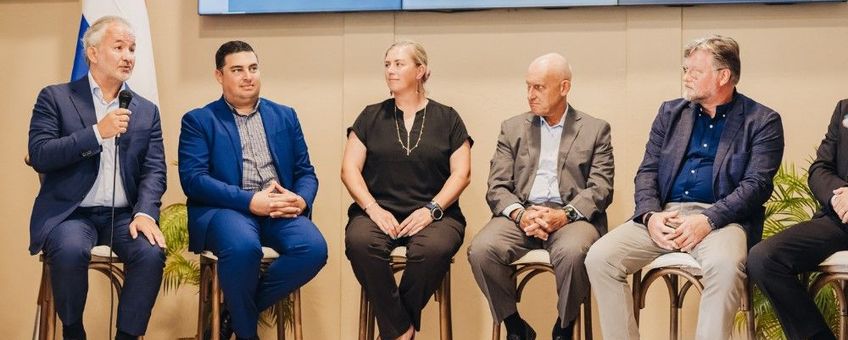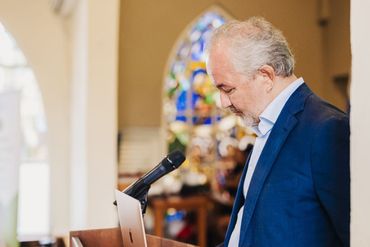
Advancing Nature-Based Solutions in the Dutch Caribbean
Dutch Caribbean Nature Alliance (DCNA)The core philosophy of the Dutch Caribbean Nature Alliance is that nature knows no boundaries. With each island boasting its own distinct characteristics and challenges, DCNA recognizes the importance of knowledge-sharing as a powerful tool for collective progress. By learning from each other’s triumphs and setbacks, the Dutch Caribbean islands are building a repository of best practices, preventing the needless repetition of efforts, and optimizing resource allocation.
Exemplary projects across the islands
 During his presentation, Arno highlighted a few key Nature-Based Solutions ongoing within the Dutch Caribbean. While there are some themes, such as coral restoration, which are ongoing across all six islands, there are many initiatives which are more island specific.
During his presentation, Arno highlighted a few key Nature-Based Solutions ongoing within the Dutch Caribbean. While there are some themes, such as coral restoration, which are ongoing across all six islands, there are many initiatives which are more island specific.
St. Eustatius: Beyond merely planting trees, Statia has engaged its entire community in an ecosystem restoration initiative, emphasizing sustainable agriculture and enhancing landscaping for aesthetic appeal. Additionally, Statia is actively eradicating invasive species to protect and revive crucial habitats as well as safeguard critical species, such as the Bridled- Quail Dove.
Curaçao: A native plant nursery, Savonet, has been established, doubling as a hub for research. Here the focus is on the transformation of seeds into resilient young plants. Across the island, the project Awa pa Korsou is working to revive historic areas of water, including old dams and wells, to better improve natural water management for the island.
Saba: The ReLeaf Saba project emphasizes species restoration rather than tree planting, aiming to increase biodiversity across the whole island.
Aruba and Bonaire: Mangrove restoration projects, involving both mangrove channel restoration as well as terrestrial reforestation, are working to improve mangrove conditions, prevent sedimentation and protect build resilience within these delicate areas.
St. Maarten: Adopting a strategic approach, the island is mapping its coral and coastal ecosystems to better inform nature-based restoration strategies.
Insights for future progress
The good news is that the Dutch Caribbean islands have a solid list of lessons learned, which can serve as a roadmap for success. By harnessing local expertise, tapping into diverse networks, and prioritizing the utilization of this shared knowledge, the islands can drive success at the local level. This collective approach not only enhances the effectiveness of ongoing initiatives but also paves the way for sustainable and impactful projects that resonate with each island’s unique needs.
To watch the full video of Arno Verhoeven’s presentation, please see below:
The presentation of Arno Verhoeven during the Symposium Nature-Based Solutions for Ecosystem Conservation and Restoration in the Dutch Caribbean (Source: DCNA)
Videos of the other presentations will be shared weekly. To (re-)watch the Zoom-recording of the symposium, please see below:
Symposium Nature-Based Solutions for Ecosystem Conservation and Restoration in the Dutch Caribbean (Source: DCNA)
More information
- Learn more about the Dutch Caribbean Nature Alliance by following DCNA on social media via Facebook (Dutch Caribbean Nature Alliance), Instagram (DCNAnature), LinkedIn (Dutch Caribbean Nature Alliance), and visiting their website.
Acknowledgements
DCNA extends its gratitude towards the sponsors; Milton Harms Fonds in collaboration with Prins Bernhard Cultuurfonds Caribisch Gebied, Aruba Tourism Authority, VNO Ministerie van Binnenlandse Zaken en Koninkrijksrelaties, Grant Thornton, Dutch Postcode Lottery, and Pelican Adventure, for contributing to the symposium and supporting an environment of collaboration and progress, exemplifying the power of partnership in driving positive ecological change.
Text, images and videos: Dutch Caribbean Nature Alliance
